Montrealers head to the polls on November 5 to elect their next mayor — or at least they are supposed to.
Many people find themselves disillusioned with city politics. Differentiating between the roles of the municipal, provincial, and federal governments, and attributing the effects of each to everyday living can be challenging. And yet, Montrealers interact with their city and the decisions it makes on a daily basis.
Central to the success of mayoral candidates Denis Coderre and Valérie Plante will be the ability to engage the youth vote, which can influence elections in powerful ways. But amid widespread voter apathy and low election turnout, exactly how are young people engaging with this important level of governance? How do students view the candidates and their proposals? Perhaps most importantly, how do young people perceive their city and their role within it?
To find out, The Bull & Bear conducted an informal survey on Montreal’s municipal election to gauge the interest and general opinions of young people. 65 people responded to the survey, shedding valuable light on these key questions.
Hope and Frustration: STM Edition
Where the city overwhelmingly loses the admiration of students is its public transportation system. Coupled with construction and traffic, the Société de Transport de Montréal’s (STM) unreliability was the most popular issue among respondents, many of whom rely on the service for their mobility.
It is for this reason that mayoral candidate Valérie Plante of Projet Montréal hopes to add a new Pink Line to Montreal’s metro network. The Pink Line would run diagonally through the city, from Montréal Nord to Lachine. Along with adding 300 new hybrid buses to the existing STM fleet and making public transportation more affordable for seniors, children, and those struggling financially, Plante’s proposed additions may help improve public transportation for those who wish to access all the city has to offer.
Denis Coderre, for his part, criticizes the practical feasibility of the Pink Line proposal, choosing instead to focus on the upcoming extension to the existing Blue Line (which will extend past terminus St-Michel to Anjou), as well as the Réseau électrique métropolitain (REM), a light rail train system that would extend West and South in order to connect Deux-Montagnes, the West Island, the Trudeau Airport, and the South Shore to the metro system.
Plante’s ambitious vision for Montreal’s transportation system has attracted the interest of several students. Christopher Ciafro, a U2 political science student, and a Plante supporter, is one such individual.
“So much of our lives is determined by our geography,” Ciafro said. “And for that reason, [Plante’s] plan particularly for the Pink Line and improvement of public infrastructure makes Montreal smaller in the sense that time between places is decreased. For that reason, [she’ll] create stronger communities.”
“Montreal has a pretty good public transport system, and I run completely on public transport,” said Sean Lee, a Communications student at Concordia University. “But other people from bigger cities have told me that [their public transit systems] blow our city out of the water, so I think that as such a huge city we should have some new projects for public transit.”
Student cyclists, such as Andrew Figueiredo (U2 International Development), are also hopeful for the investment in bike infrastructure proposed by both Coderre and Plante.
“[Montreal’s] bike infrastructure is pretty good, but I would like to see more bike lanes as a cyclist myself,” Figueiredo said. “[Bike lanes] are a part of [Plante’s] platform that really does appeal to me— that and her platform in terms of increasing metro service. Coderre also has a plan to increase bike lanes, though not to the same extent […] I think that’s one area where they both shine.”
Video courtesy of TVM: Student Television at McGill
Love and Hate for Denis Coderre
Opinions were generally mixed regarding Montréal’s incumbent mayor, Denis Coderre. Just over 20% of student respondents indicated they would cast a vote for Coderre (compared to 56% support for Plante).
Many of those displeased with Coderre’s tenure cited frustrations over seemingly endless construction projects, displeasure with perceived overspending, and a general feeling of concern over perceptions of corruption associated with previous municipal governments. Coderre’s response to Uber’s threat to leave Quebec, and the implementation of Montreal’s pitbull ban were among other criticisms.
Despite this, many appreciate Coderre’s leadership concerning the cultural, artistic and architectural additions to the city, especially with regard to Montreal’s 375th anniversary celebrations. Several respondents indicated that they value initiatives by Coderre to make Montreal more attractive and discoverable by those living in and visiting the city. Figueiredo, who is an undecided voter, is one of them.
“The [Montreal 375] celebrations have caught a lot of flack, but I think overall they’ve been pretty good, and I think that [they] reinstalled a sense of pride in the city,” Figueiredo said. “There’s more jobs than ever, there’s more businesses opening up in Montreal, people are moving in the city. So I think the [Coderre] administration has been effective in reforming and reshaping the Montreal economy.”
Ciafro generally concurs, highlighting the artistic additions to Montreal’s urban landscape, but also emphasized that surface-level additions to the cityscape are not enough for Montreal.
“On the outside, a lot of what [Coderre] has done has been really good for the city of Montreal. The redevelopment of the [Bonaventure] Expressway […] the revitalization of urban spaces to make them more pedestrian-friendly, the flags on Sherbrooke street— these are things that have made Montreal seem alive,” Ciafro said.
“These are aesthetic improvements […] The focus has not been on people; it’s been on business,” Ciafro said. “Economic development is important, but Coderre has been trying to put Montreal on the world market. He’s been trying to make it seem as though it’s a world city. But what does being a world city do for the people that live here?”
“For example, [Coderre] wants to build a baseball field, but it’s not like the MLB doesn’t have millions of dollars to build their own field. So him pursuing a plan to build the baseball field is just one giant government subsidy for an industry that is already raking in millions of dollars. It’s unneeded investment,” Ciafro said.
Being a City Dweller
Montreal’s last election was plagued by low voter turnout. Canada’s youth turnout has historically hovered at around 40%. Over a third of respondents to The Bull & Bear’s survey indicated that they were not interested in municipal politics, and just 56% indicated they would certainly participate in Sunday’s election.
Figueiredo believes that the reasons young people are so apathetic to municipal politics come down to a loss of faith in the political process and the relative lack of media attention given to local government.
“With all the high-profile cases in Montreal as of late, people just feel like city government is never going to change. They feel like nobody is going to go in there and clean things up,” Figueiredo said. “There’s also not as much visibility around municipal politics. You can catch Question Period [in the House of Commons] on CBC, but it’s kind of hard to catch a city council meeting. While [city politics] impact them, [people] just don’t see the high-profile candidates, the big names and the big faces on the TV commercials.”
Indeed, despite the apathy toward municipal politics, survey respondents indicated that students seem to appreciate most of what the city has to offer. Over half of all respondents rated Montreal’s cuisine, people, nightlife, arts, and culture highly.
Given the benefits Montrealers derive from living in an urban environment, Lee believes engagement in city politics is a crucial form of civic involvement.
“The city is meant to fill in the gaps that other tiers of government don’t take care of. But living in a city is more than that. You feel connected to everyone around you. Everyday, everyone is going through the same thing. We’re all going through Montreal together,” Lee said.
Ciafro goes even further to emphasize that the politics of the city is something that links all citizens together in pursuit of common living spaces, services, and culture.
“City politics is about how we come together to make decisions that aren’t solely for the individual,” Ciafro said. “It’s about making concessions to each other in the sense that what might not directly benefit you will benefit the society as a whole.”
“You see city politics everyday. It’s the roads that you use, the buses you take, the metros you ride, it’s the home that you live in. It’s where your house is in relation to your place of work, your family and friends,” he said. “So local politics has immense effects on geography and that geography is what determines so much about how your life is lived.”
Questions On the Voting Process?
Check your eligibility to vote here: http://election-montreal.qc.ca/liste-electorale/index.en.html
Find out where and when you can vote here: http://election-montreal.qc.ca/voter/index.en.html
Denis Coderre’s campaign website can be found here: http://www.equipedeniscoderre.com
Valérie Plante’s campaign website can be found here: http://www.projetmontreal.org

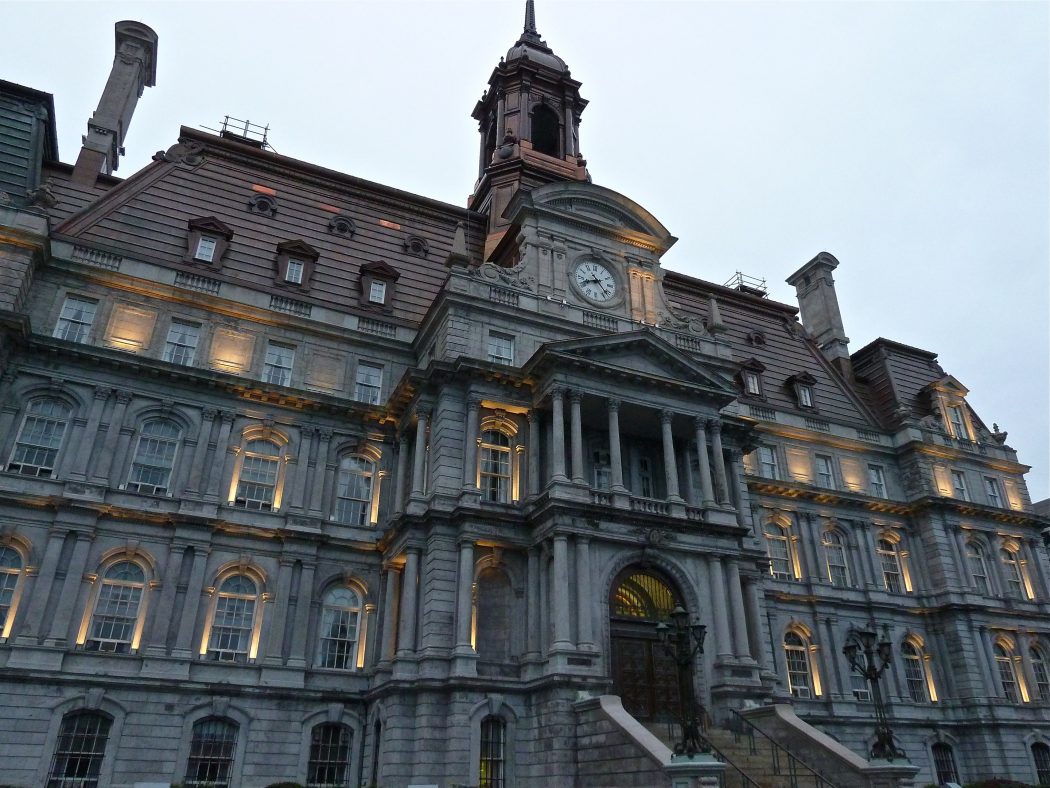


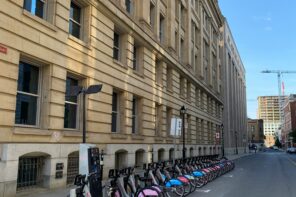
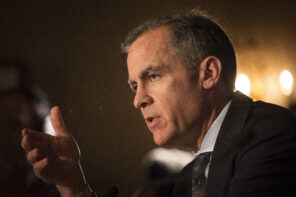

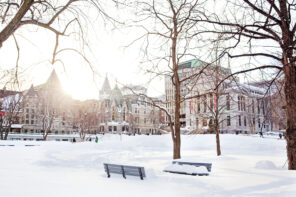
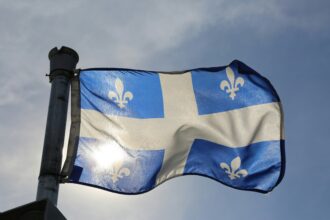
Great article, well-written with insightful commentary on issues that are reflective for young Montrealers, and what are their priorities for quality daily living from youth voters’ perspective.
Which then begs the million dollar question…Why in this Montreal world aren’t more youth involved in municipal politics?!